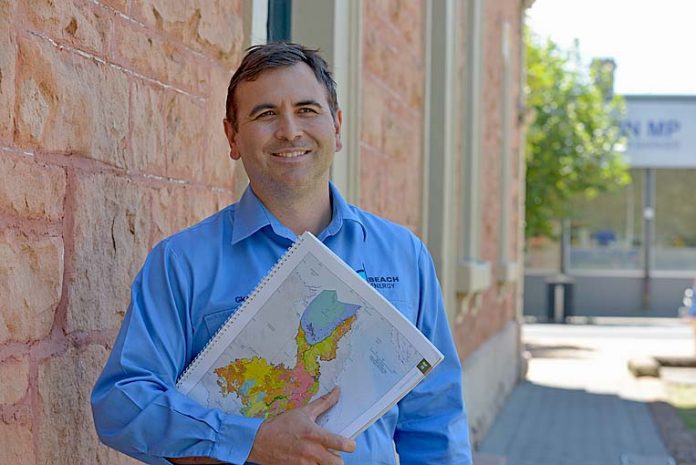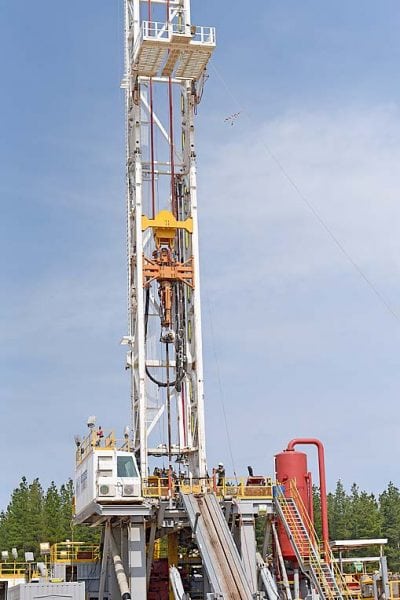

GAS exploration giant Beach Energy has dismissed concerns by anti-mining activists over the dumping of South East drill cutting material into a McLaren Vale landfill site.
This follows prominent South East environmentalist Anne Daw questioning why drill cutting material from Haselgrove-3 near Penola was trucked to an Environment Protection Authority (EPA) licensed commercial landfill in another premier wine region.
It is understood the drill cutting material was classified as “intermediate level” contaminated soil.
Ms Daw also queried why Beach Energy was responsible for testing its own material, arguing this should have been an independent process.
Beach Energy South East manager Glenn Toogood rejected concerns flowing from the environmentalist.
“The material was ground up rock that was disposed of at an EPA licensed facility,” Mr Toogood said.
“The material was also transported in EPA licensed vehicles.”
He said the material was ground up rock, mud and limestone and the material was disposed of in an EPA licensed landfill as a “precautionary measure”.
“We are feeling frustrated that we are trying to do the right thing and we have people trying to make a mountain out of a mole hill,” the company spokesperson said.
“We took extra precautions to ensure it was disposed of in the right way.”
Mr Toogood also rejected concerns there were nasty chemicals or substances in the material other than drilling fluid.
But Ms Daw said she was “shocked” this material was sent to another wine region and questioned whether environmental regulators were not taking into account the possible damage to a region’s reputation.
“Does the EPA think about the reputation damage on premier wine regions? I do not think they have their head around this issue properly,” she said.
“When I tell people that this material has been sent to the McLaren Vale, they are shocked. I do not believe this region is aware of what is going on.”
The outspoken environmentalist – who sits on an oil and gas government roundtable – questioned how gas exploration companies were allowed to conduct their own testing.
“This should be done independently and the results should be released to the public – I would like to see the test results done by Beach Energy, ” Ms Daw said.
“If they do not test for everything, how do we know whether those substances are there or not.”
Ms Daw said the fact this material had to be buried in a commercial landfill raised questions about what substances were in the drill cutting.
“We must realise these occurrences of transporting wastewater to Portland and the solids and drill cuttings to McLaren Vale has nothing to do with fracking,” she said.
“We have to ask – is the government going to allow transportation of this waste to other areas in the state or interstate because there is no answer to adequate disposal of waste water in our pristine area?”
In a statement from the EPA, a spokesperson said the Department for Energy and Mining was the government agency responsible for overseeing the regulation of exploratory activities for petroleum purposes.
The EPA regulates the licensed transport and disposal of waste in South Australia.
“The waste consignor (producer), transporter and receiving facility all have obligations to ensure the waste is properly tracked, transported by a licensed transporter and disposed of at an approved licensed facility,” the spokesperson said.
“Waste facilities are licensed to receive certain types of waste and are designed such these wastes can be safely managed and disposed of. Any petroleum exploration wastes such as drill cuttings would need to meet facility licence conditions and relevant EPA guidelines.”
The spokesperson said the EPA did not “routinely” receive analyses of wastes disposed of at licensed facilities in South Australia.
“It is expected that petroleum exploration wastes such as drill cuttings would not present a challenge to a suitably licensed facility given the range of wastes that are handled and disposed of,” the EPA said.
“Questions about the analysis are a matter for the site operator.
“South Australia’s premier wine region McLaren Vale has had a licensed waste disposal facility for many years.”







